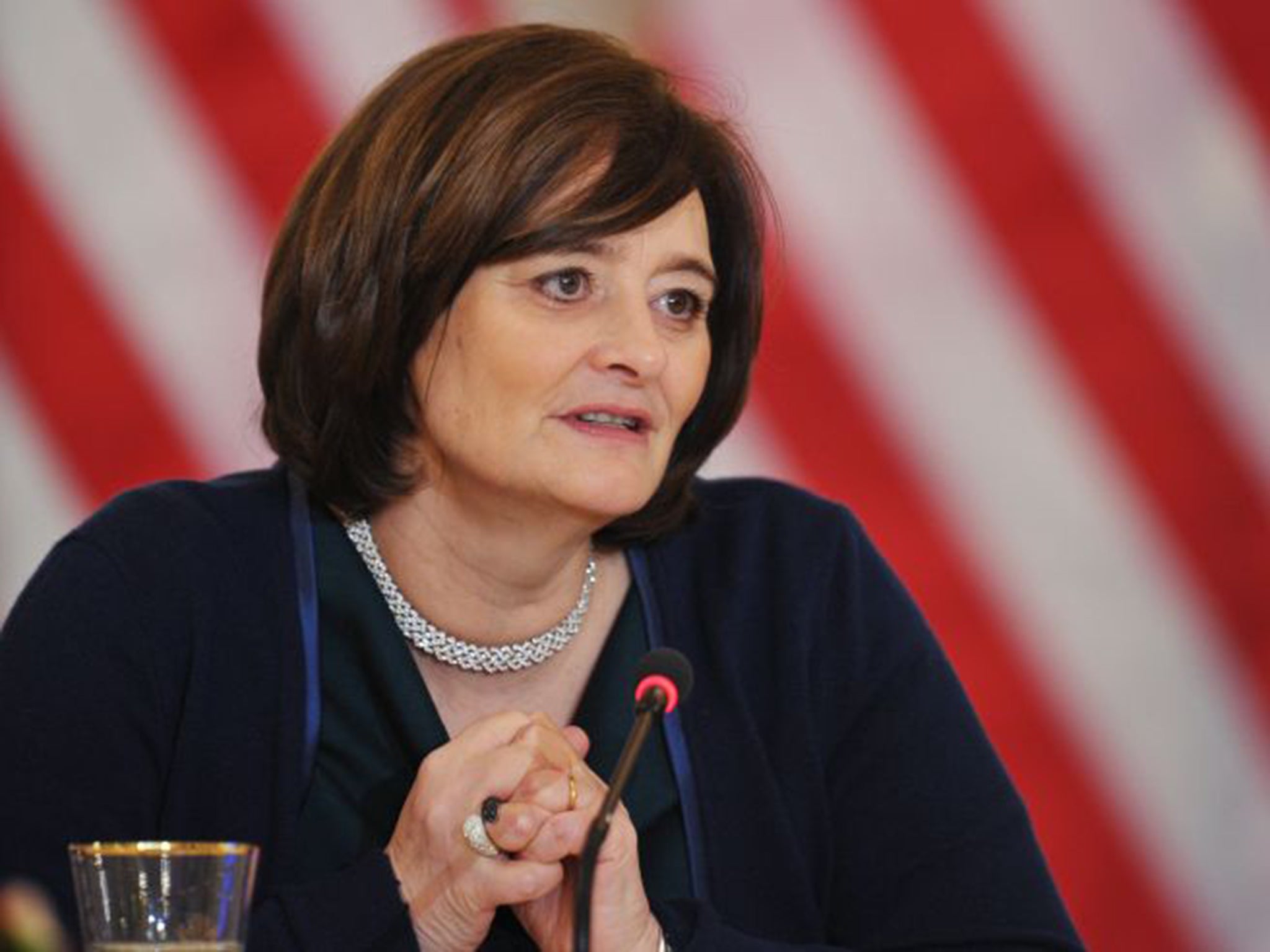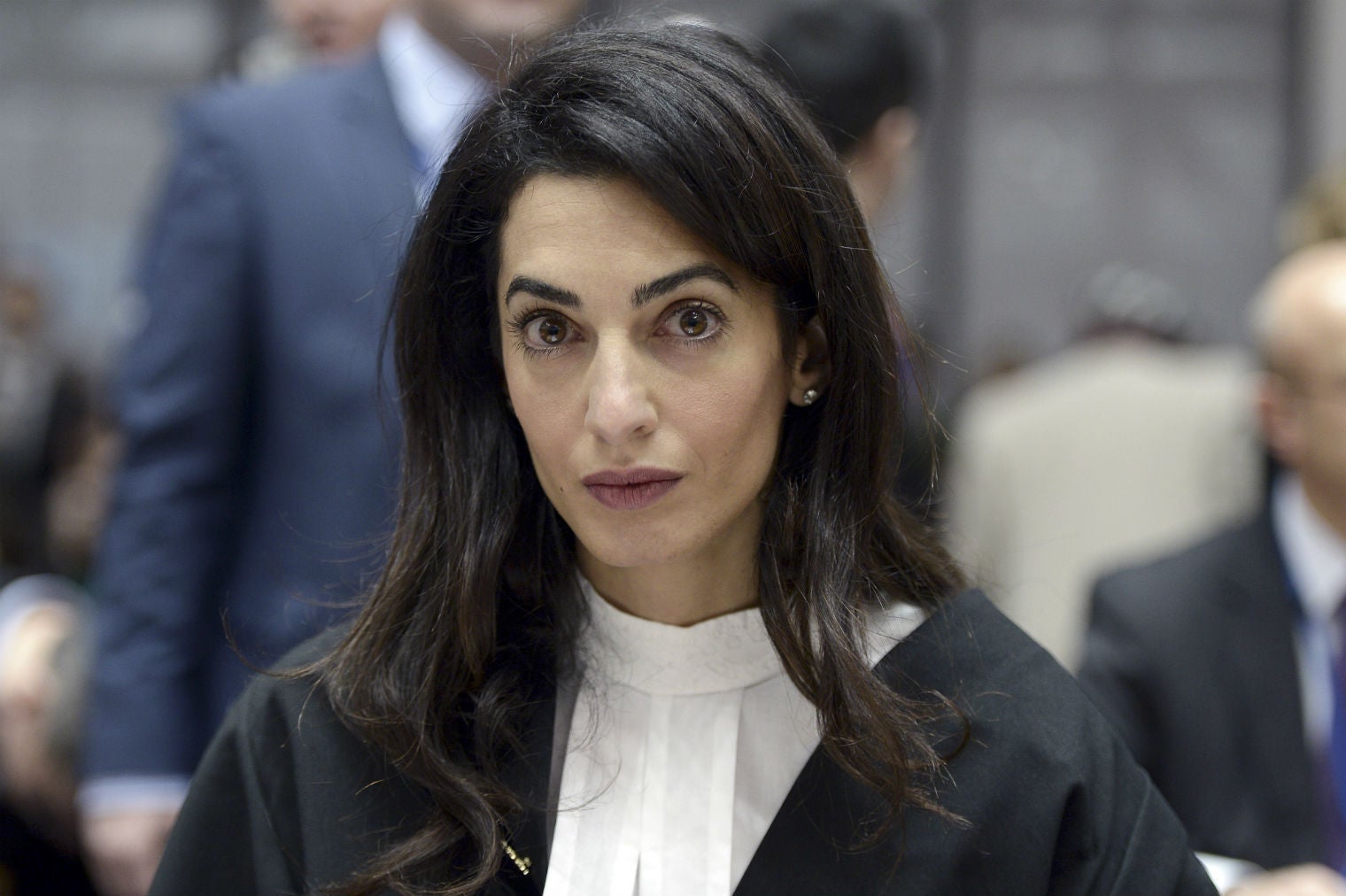Amal Clooney and Cherie Booth take opposite sides in Maldives ex-president Mohamed Nasheed court battle
World View: How Ms Booth, the wife of the man once renowned for having the surest touch in British politics, ended up on the side of the Maldives government is a puzzle

Your support helps us to tell the story
From reproductive rights to climate change to Big Tech, The Independent is on the ground when the story is developing. Whether it's investigating the financials of Elon Musk's pro-Trump PAC or producing our latest documentary, 'The A Word', which shines a light on the American women fighting for reproductive rights, we know how important it is to parse out the facts from the messaging.
At such a critical moment in US history, we need reporters on the ground. Your donation allows us to keep sending journalists to speak to both sides of the story.
The Independent is trusted by Americans across the entire political spectrum. And unlike many other quality news outlets, we choose not to lock Americans out of our reporting and analysis with paywalls. We believe quality journalism should be available to everyone, paid for by those who can afford it.
Your support makes all the difference.It’s a tinpot family dictatorship masquerading as a democracy and squatting on a couple of dozen atolls lost in the Indian Ocean, with a total population about the size of Cardiff.
Yet the Maldives crystallises a number of the world’s most acute anxieties: global warming, Islamist militancy, the tendency of democratic reform right across the Muslim world to be hijacked and trampled by religious extremism. In the past week, it has also offered the first opportunity for Britain’s two most prominent female lawyers, Cherie Booth and Amal Clooney, to square up to each other.
Given her record, it is no surprise that Mrs Clooney should be defending outraged democratic principle, in the form of the ex-president Mohamed Nasheed, the first elected head of state in the Maldives, as he fights a 13-year jail sentence that Amnesty International called “a travesty of justice”.
Nor, given the uncanny attraction of the Blairs to despots from Beijing to Qatar by way of Kazakhstan, is it startling to learn that Ms Booth is advising the government of President Abdulla Yameen, brother of the man who ruled the Maldives with an iron fist for 30 years, and whose court – over which the government insists it has no influence – put Mr Nasheed in jail.
With its advertising come-on as “the sunny side of life”, its aquamarine waters and broad blonde beaches, the Maldives are an unbeatable symbol of tropical self-indulgence. Yet its unique charm is also the source of its great peril: it will be one of the first victims when global warming causes the level of the oceans to rise a little higher – hence ex-President Nasheed’s stunt some years back of holding an underwater cabinet meeting.
But there may be a greater and more pressing peril even than drowning. Converted to Islam in 1153, the Maldives countenances no other faith. Its traditional form of the religion was mild, but the recent influence of Saudi Wahhabism is reflected in executions and judicial floggings, while new regulations require all publications to pass tests of conforming to Islamic principles or face official suppression.

If the return, after a brief reformist interlude coinciding with the Nasheed years, of the old repressive ways was intended to choke off extremism, it appears to be having the opposite effect: up to 200 Maldivians are believed to have travelled to Iraq and Syria to fight with Isis, and a number have already died there; the terror group’s black flag is flown at demonstrations in Malé, the capital, with impunity; and, in an interview with The Independent on Sunday last year, Mr Nasheed painted an alarming picture of his nation as an Islamist tinderbox.
“Radical Islam is getting very, very strong,” he said. “Their strength in the military and the police is very significant. They have people in strategic positions within both. Of the 200 people who have gone to jihad, the vast majority are ex-military.” And although he said there was no direct threat to the one million-plus tourists who holiday on the islands every year, he feared that this could change. “[The government] don’t want to hit the tourism industry because they are getting such good ‘milk’ out of it … Everybody wants the money out of that.” But this equilibrium, he said, was perilous, and cited the sudden collapse of the Iraqi city of Mosul which heralded the triumph of Isis. “If you look at how Mosul fell – the top brass ran away because Isis had already infiltrated the rank and file. I have a feeling that our police and military are already taken. Eventually, the Islamists will cause havoc in the Maldives. I have no doubt about it.”
Fortunately for the government, this authoritative Cassandra can no longer spread his alarming predictions because he is due to spend the next dozen years in jail. Having been forced from power in 2012 by a coup, earlier this year he was convicted of “terrorism” by a Malé court for his action in ordering, while still president, the arrest of a judge he believed to be corrupt. Mrs Clooney called the verdict “a mockery”. It was certainly a mockery of language.
Despite the exciting Clooney vs Booth billing, the two are not expected to pop up on opposite sides of a courtroom. Ms Clooney wound up her four-day visit on Thursday, and on Friday was discussing the case with political leaders and diplomats in Sri Lanka. But her conclusions were bleak: human rights in the Maldives were “deteriorating day by day”, she said. If the government refused to free Mr Nasheed, “the next stage will be to pursue targeted sanctions”.
How Ms Booth, the wife of the man once renowned for having the surest touch in British politics, ended up on the side of the Maldives government is a puzzle. As a spokesman for Mr Nasheed put it: “This dictatorship has locked up the Maldives’ first democratically elected president and the entire Maldives opposition, while human rights are in free-fall. It is hard to believe that Cherie Blair would want to keep company with such thugs of ill repute.”
A spokesman for her firm, Omnia Strategy, said its task was “to assist the government in strengthening democracy, the rule of law, and restoring investor confidence”. The collaboration was “part of the government’s broader strategy for democratic consolidation”. Omnia had been hired to “advise on legislative reform to improve transparency and accountability”.
Join our commenting forum
Join thought-provoking conversations, follow other Independent readers and see their replies
Comments